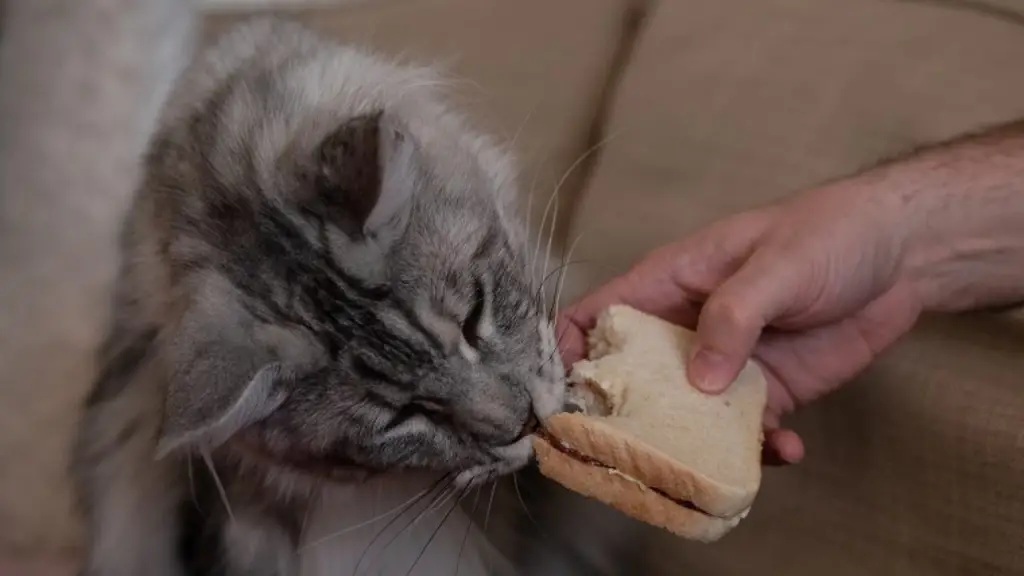
If you are one in a dozen people wondering ‘can cats have mayo’, the answer is both yes and no. Why? Because feeding your cat with mayo has both merits and demerits.
The most straightforward solution to the question of whether or not cats can consume mayonnaise is somewhat interesting. If a cat eats a small amount of mayonnaise, there is a good chance that the cat will not have an instant adverse reaction. Similar to other condiments, a pinch of mayonnaise isn’t harmful or poisonous to cats. However, in large quantities, it opens a can of worms. We look at this issue objectively.
Can cats have mayonnaise?
Mayonnaise isn’t particularly healthy for people; thus, it stands to reason that there isn’t much of a purpose to include it in your cat’s diet. Since cats are carnivores by nature, the majority of the food that they eat should consist of meat.
What’s interesting, though, is that it gets several benefits on the off chance that it licks it.
Advantages
Mayonnaise is an excellent source of nutrients that could alleviate a cat’s digestive troubles.
Occasionally, a tiny amount of mayonnaise administered to cats experiencing constipation eases their digestion. You add a small quantity of this dressing to your cat’s usual food, but always follow your veterinarian’s dosing instructions.
You get the following advantages.
- Provide probiotics – Good bacteria present in probiotics aid in the maintenance of a healthy and well-functioning system.
- Eases constipation – To aid with digestion and bowel movements, mayonnaise includes probiotic microorganisms.
- Mayonnaise facilitates the body’s uptake of various nutrients, including vitamins and minerals.
- It relaxes your cat’s taste buds and provides a change for them.
- If your cat has come into contact with something spicy, the velvety consistency of mayonnaise can help calm it down and make it more comfortable.
Disadvantages of a cat eating mayo
For starters, regular and high amounts of mayonnaise in your cat’s diet is dangerous. It poses various health complications. They include the following.
Feline obesity
Mayonnaise is high in calories and has a significant amount of fat. If your cat develops a liking for mayonnaise, it runs the risk of becoming overweight. It eventually develops obese-related health complications.
Worthy to note is that mayonnaise is one of the food condiments with the most significant total calories and fat content. Additionally, it is high in salt, often associated with an increased risk of weight gain. One tiny spoonful of mayonnaise equals 90 calories and 10 grams of fat.
Diarrhea
While specific studies suggest that mayo solves constipation issues in cats, others suggest otherwise. It’s possible that your cat can’t make mayonnaise because cats are lactose intolerant. On the flip side, mayonnaise could be problematic on a cat’s digestive tract and cause diarrhea in some cases.
Mayonnaise consists of oil, egg, vinegar, and other additives. These are some of the chemicals that wreak havoc on the delicate digestive systems of your cat and cause them to become listless as a result.
Allergy
Your cat risks developing allergic reactions from eating eggs – one of the ingredients in mayo. If you are giving your cat eggs for the first time, observe her for at least a day or two to determine whether or not she has any adverse reaction to them.
According to the Cummings Veterinary Medical Centre at Tufts University, eggs are a common allergen in cats and dogs. A food allergy could be one of the reasons why a pet has itchy skin or ears, skin infections, or gastrointestinal problems.
Pancreatitis
Eggs are safe for cats to consume in minimal amounts. Nevertheless, the yolks of eggs contain a lot of fat. They also have a high cholesterol content, which increases the risk of pancreatitis and other health problems in cats, in addition to obesity.
Hyperlipidemia
A cat could develop secondary hyperlipidemia, a condition brought on by another disease process or an outside source. The predisposing factors include the following:
- Obesity
- Excessively fatty diet
- Pharmaceuticals
- Diabetes Pancreatitis Pancreatic inflammation
- The disease of the liver
- Pancreatitis
Summary of cats eating mayonnaise
Cats eating mayonnaise |
Advantage |
Disadvantage |
Ease constipation |
Diarrhea |
|
Increase uptake of vitamins and minerals |
Pancreatitis |
|
Rich in probiotics |
Hyperlipidemia |
|
Relaxation for taste buds |
Obesity |
|
Eases off spicy taste from a cat’s taste buds |
Allergy |
How do I feed my cats mayo?
It is in your best interest to consult with your trusted veterinarian before feeding your cats with mayonnaise. Several things to take into consideration before letting your cat enjoy mayo include the following:
- Age
- Degree of activity
- State of health
Secondly, provide plenty of clean and fresh drinking water for your cat daily as you throw in some mayonnaise in their diet. It is highly unlikely that your cat would become ill when they consumes a very small amount of this delicacy.
However, if you believe that he ate too much or if he displays indications of being ill, it is important to take him to a veterinarian immediately. It helps in making a proper diagnosis to avoid fatal eventualities such as developing life-threatening complications.
Conclusion
Although many of us know that mayonnaise has a delicious flavor, this does not mean we should give it to our cats as a treat. If you give your cat mayonnaise in moderation, there is no reason to worry. If you give it to them occasionally as a treat, there is no reason to worry about them getting sick. However, if mayonnaise gets into their diets regularly and at every meal, it has the potential to poison their digestive systems. It could also be the root cause of obesity in your cat.
FAQs
1. Is mayonnaise safe for kittens to eat?
The fragile digestive processes of kittens make mayonnaise a bad idea for them. Only meat-based foods provide your cat with the protein-enriched nutrition that it needs.
2. Is a little mayo bad for cats?
You should limit your cat’s intake of mayonnaise because it is high in fat. If you give your cat mayonnaise too often, it develops diarrhea and a host of other illnesses.


